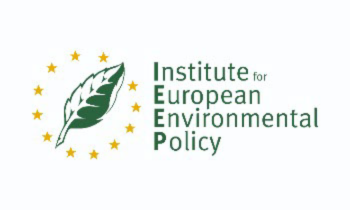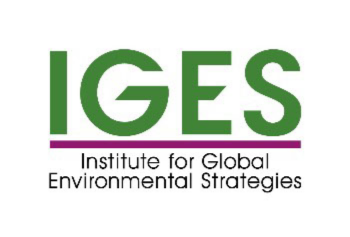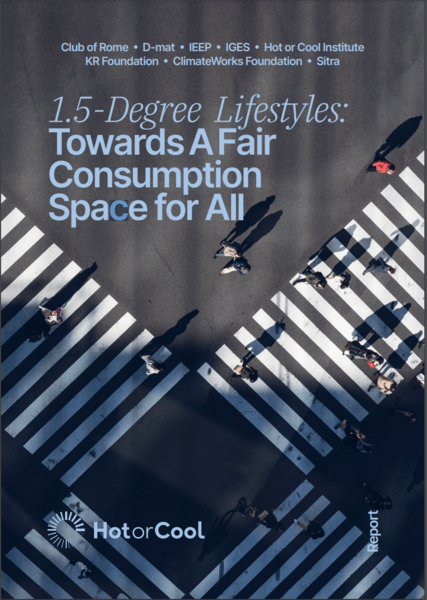
ABOUT THE Report
The 1.5-degree lifestyles reports investigate the impacts of consumption and lifestyles on climate change and introduces a science-based approach to link concrete changes in lifestyles to measurable impacts on climate change. This work is central to our ability to meet the 1.5-degree aspirational target of the Paris Agreement.
Most policy approaches for meeting climate targets rely on the hope for new technologies – such as negative emissions technologies – and changes in production. This often underestimates the contributions of lifestyle changes. The 1.5-degree lifestyles work fills a gap in the existing research by establishing global targets for lifestyle carbon footprints, examining current consumption patterns and their impacts on footprints, and evaluating potential reduction impacts of low-carbon lifestyle options.

1.5-Degree Lifestyles: Towards A Fair Consumption Space for All (2021)
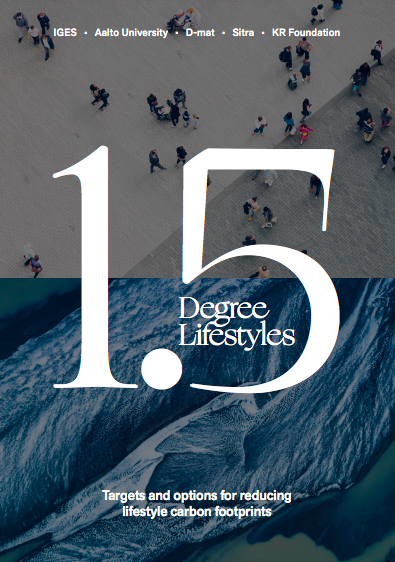
1.5-Degree Lifestyles: Targets and Options for Reducing Lifestyle Carbon Footprints (2019)
Read more
The 1.5-degree lifestyles approach examines GHG emissions and reduction potentials using consumption-based accounting, instead of production-based accounting, which covers only direct emissions from domestic production activities within certain geographical boundaries. Consumption-based accounting covers both direct emissions in a country and embodied emissions of imported goods while excluding emissions embodied in exported goods. This accounts especially for the global impacts of high-consuming societies, and recognises that some communities still need to increase consumption to meet basic needs of their citizens.
In order to achieve the 1.5 °C aspirational target of the Paris Agreement, lifestyle carbon footprints must drop to 2.5 tCO2e per capita by 2030 and 0.7 tCO2e per capita by 2050.
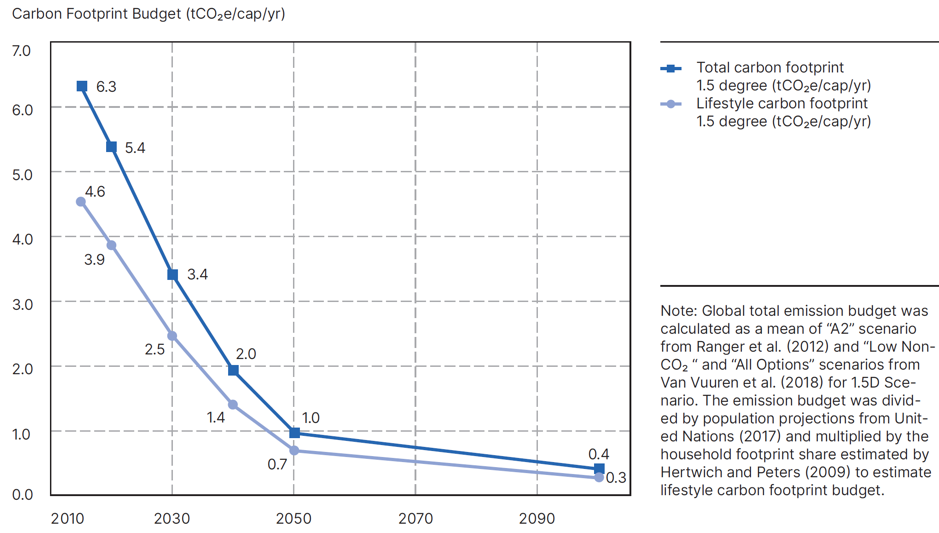
Changing lifestyles, especially by prioritising high-impact areas, such as food, personal transport, housing, consumer goods, leisure, and services, can bring about results relatively quickly, especially in consumption domains that are not locked into existing infrastructure.
A global carbon budget. The remaining carbon budget refers to the maximum amount of carbon dioxide equivalents that humanity can still emit while limiting global warming to a given target, such as 1.5°C. The longer mitigation action is delayed, the faster the budget is used up. The remaining carbon budget therefore communicates the urgency of climate mitigation. According to this latest IPCC assessment, starting from the beginning of 2020, the remaining carbon budget for a 50% likelihood of keeping warming to 1.5°C amounts to 500 GtCO2.
Lifestyle carbon footprints. These are measures of GHG emissions directly and indirectly induced by an average household’s consumption but excluding those from the public sector and capital investment. In principle, lifestyle carbon footprints are calculated by multiplying average annual consumption in physical units with life-cycle-based carbon intensities for a wide range of goods and services in case countries. For consumption areas where physical units cannot be easily expressed, such as for “leisure,” consumer expenditures can be used. This consumption-based accounting approach ensures a clear focus on emissions attributable to lifestyles, and allocates emissions to specific goods and services consumed by households.
Hotspots. Lifestyle carbon footprints are analysed to identify “hotspots”—consumption areas with the highest climate impact. Identification of specific hotspots is made easier by the use of physical consumption units, such as distances travelled by car or vegetables eaten.
Equity-based reduction targets. To ensure that the temperature limits of the Paris Agreement are met, per capita targets are determined by distributing the remaining carbon budget on an equitable basis across the global population. Establishing long-term per-capita carbon targets requires balancing GHG emissions and effects of sinks. Thus proposed per-capita carbon footprint targets dynamically shrink into the future as the total carbon budget shrinks—the longer action is delayed to stabilise and reduce emissions, the more rapidly the budget will shrink. Current targets for this report are estimated to be 0.7tCO2e by 2050, with intermediary targets of 2.5t in 2030 and 1.4t by 2040.
Low-carbon options. To support meeting 1.5-degree lifestyle targets, a number of low-carbon lifestyle options are drawn from the scientific literature and their emissions reduction potential is estimated. Options include both production-side efficiency improvements and consumption-side changes, grouped according to three key approaches: absolute consumption reductions, modal shift to alternative products or services, and efficiency improvements of current goods and services.
Adoption rates. Adoption rates are used to account for the varying extents to which a population changes to low-carbon options. They represent the share of the population implementing an option (e.g. 50% of population adopt a vegetarian diet) and/or the extent of implementation of the option (e.g. vegetarian diet implemented by 50%, i.e. half of one’s meals are vegetarian). Estimated impacts and policy recommendations are calculated on the basis of partial or full implementation (or adoption) of each low-carbon lifestyle option.
The 1.5-degree lifestyles approach has been widely referenced by research organisations and think tanks, recognized by the media, and has influenced recent discourse seeking to integrate lifestyles perspectives in sustainability policy. These are select examples of the influence the 1.5-degree lifestyles approach has had so far:
- It is the basis for the low-carbon lifestyles chapter of the United Nations Environment Programme Emissions Gap Report 2020, and continues to inform the work of UNEP on sustainable lifestyles.
- It is providing knowledge input on the lifestyles component under the Global Opportunities for SDGs (GO4SDGs), funded by the government of Germany and led by UNEP.
- Recognizing the need for such an approach the European Commission has funded two multi-year research project consortia under the Horizon 2020 scheme: “EU 1.5-Degree Lifestyles” and “PSLifestyles”.
- In Finland, Sitra has adopted the 1.5-degree lifestyles approach to develop the “Shift-1.5 Method” that has engaged almost a fifth of the country.
- The approach is also informing the philanthropic community’s work on behaviour change, such as the Funders for Sustainable Living network, convened by the KR Foundation.
- It prompted the work and report by the Cambridge Sustainability Commission on Scaling Behaviour Change.
- At the city level, ICLEI – Local Governments for Sustainability, the Institute for Global Environmental Strategies, and partners under the One-Planet network are analysing 1.5-degree urban lifestyle solutions in Kyoto, Yokohama, Cape Town, New Delhi, São Paulo and Nonthaburi. Similarly, C40, the network of the world’s megacities committed to addressing climate change, is using the 1.5-degree lifestyles approach to support its work under the Thriving Cities Initiative.
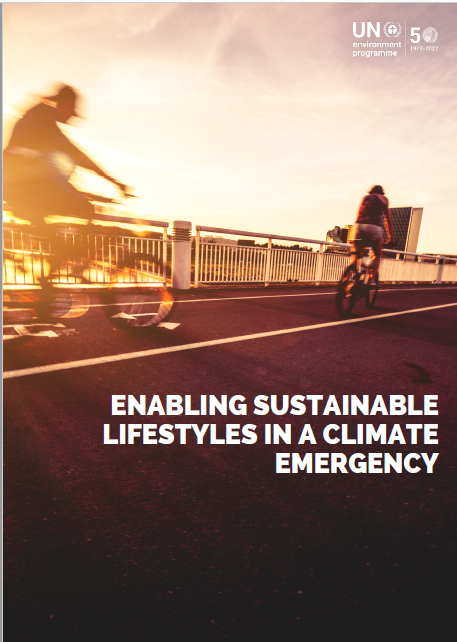
Enabling Sustainable Lifestyles in a Climate Emergency

Future Lifestyles




